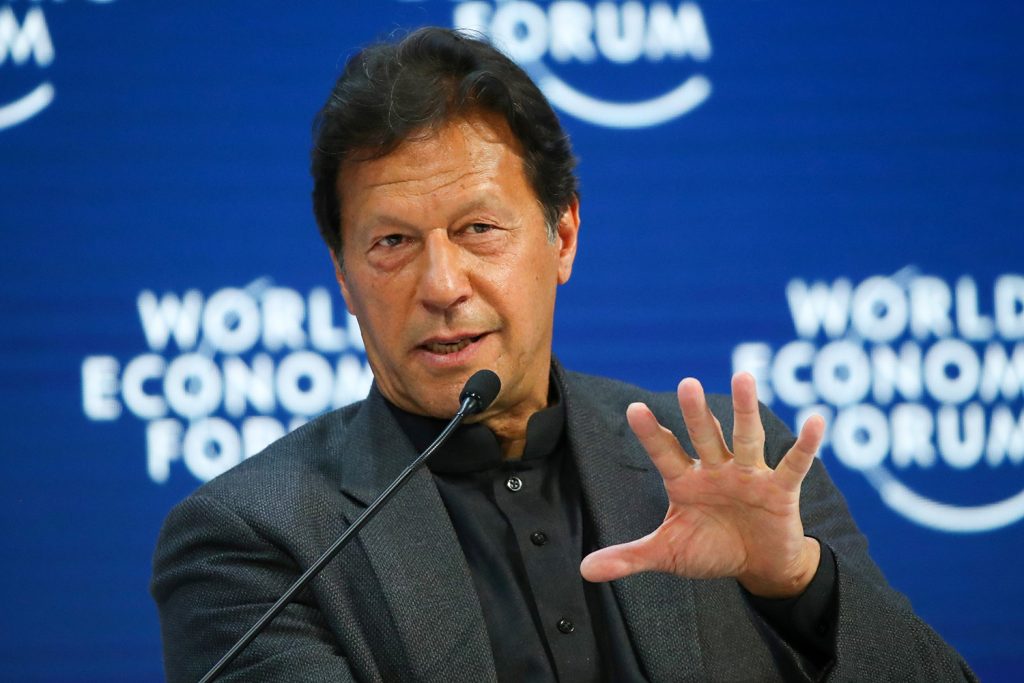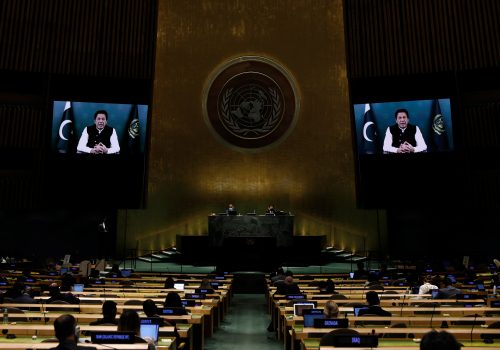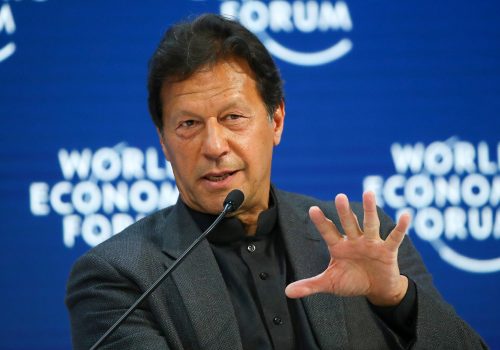On Wednesday, December 8, journalist Kamran Yousaf broke the news that Pakistan was going to “skip the US summit on democracy.” This was soon confirmed through a press release issued by Pakistan’s Foreign Office, which stated that “Pakistan is a large functional democracy” that has “instituted wide-ranging reforms aimed at advancing” democracy at home. It also stated that both Pakistan and the United States “can engage on this subject at an opportune time in the future.”
To be fair, this was a tough decision for Pakistan’s leadership, which genuinely wants to deepen its relationship with the United States while also safeguarding its strategic relationship with China. The decision to skip the Summit for Democracy, however, is a mistake that undermines this goal and will make it that much harder for Islamabad to develop better ties with Washington.
There are three key reasons for why this decision is a mistake:
- Reinforces the view that Pakistan is firmly in the China camp. The strategic competition between the United States and China will be the dominant geopolitical driver for the foreseeable future and Pakistan finds itself caught right in the middle. On the one hand is Beijing, a strategic ally which has invested heavily in the country’s economic development. On the other is Washington, a key market for Pakistani exports, a historic provider of military assistance and hardware, and home to a substantive diaspora that is the connective tissue of the bilateral relationship. Over the last few years, there has been growing unease in Washington about Pakistan’s deepening ties with China, with some in Washington talking about how growing indebtedness to the Chinese means that Pakistan will be unable to make its own foreign policy choices in an era of strategic competition. The decision to skip the summit will only reinforce these views, empowering those who think that it is not worthwhile to forge a deeper bilateral relationship with Pakistan.
- Misses an opportunity to highlight Pakistan’s accomplishments. Though a weak one, Pakistan is one of the most populous democracies in the world, one of a handful of democracies in the Muslim world, and the only nuclear-armed Muslim majority nation. The Democracy Summit was a perfect opportunity for the country to highlight its own democratic accomplishments, how its people have bravely confronted dictatorship and authoritarianism, and how a consensus-driven process, as flawed as it may have been over the decades, has birthed institutions capable of governing a diverse, multiethnic society. The summit would also have been the ideal opportunity for Pakistan to demonstrate how democratic consensus was forged to push back radical terrorism, the role of civil society in shaping the debate, and highlight the country’s own priorities to further strengthen democracy at home. By deciding to not attend the summit, Pakistan has ceded a unique opportunity that was on offer.
- Forgoes alignment with a key Biden-Khan priority. In the runup to the summit, the Biden administration released the country’s first-ever strategy to counter global corruption. The strategy “commits the U.S. to deepening cooperation with foreign partners who have shown the political will to fight corruption.” One would imagine that Prime Minister Imran Khan, a leader who has railed against corruption for decades, would want to engage with the administration on this particular topic, especially as it relates to how foreign assistance and aid is captured to benefit elites within Pakistan. The summit would have provided Pakistani representatives to highlight their own anti-corruption priorities and express a willingness to work with the United States on combating this global scourge that threatens stability in developing countries like Pakistan.
At the very least, Pakistan should have sent a ministerial level representative to the summit, as that would signal that the country is willing and open to engaging with Washington. By choosing to not attend this summit, the country has undermined the work of many who have toiled away for years to deepen bilateral relations between Pakistan and the United States. This decision will only further empower those in Washington who have argued for years that engaging with Pakistan is not going to yield any material national security benefits to Washington.

The South Asia Center is the hub for the Atlantic Council’s analysis of the political, social, geographical, and cultural diversity of the region. At the intersection of South Asia and its geopolitics, SAC cultivates dialogue to shape policy and forge ties between the region and the global community.


